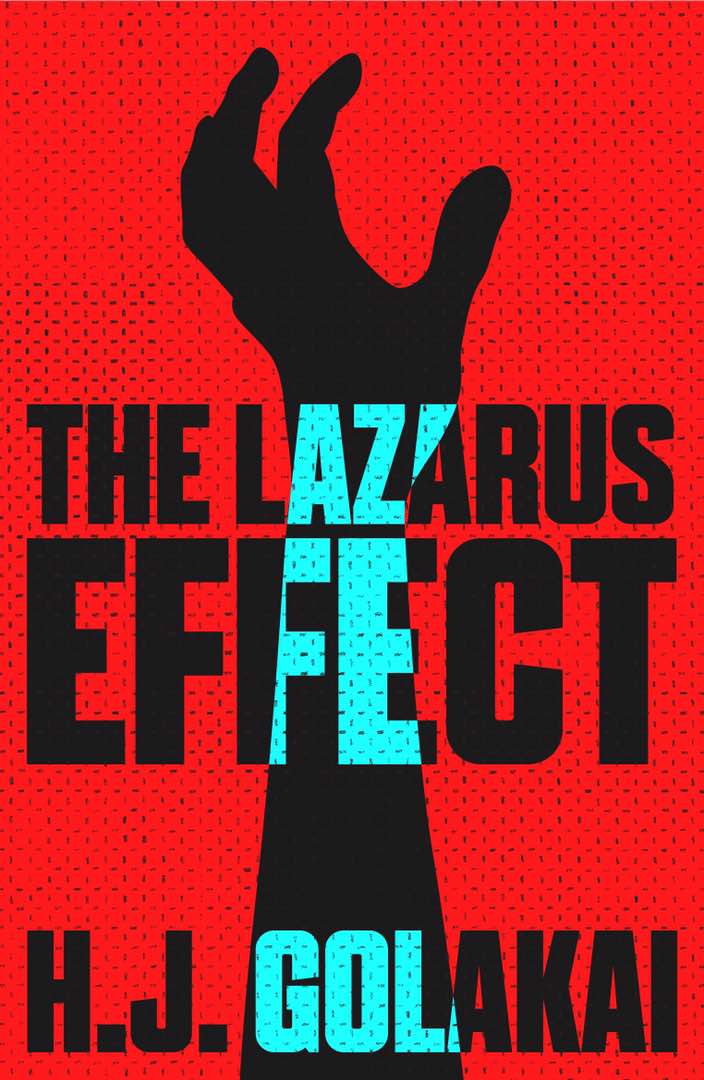Features
Hawa Jande Golakai’s “The Lazarus Effect” is #LiterallyWhatsHot with Top-Notch Storytelling
It’s funny how a significant number of African book-lovers immerse themselves into novels written by authors of other continents but sneer at African literature now and then. This is not without good reason though; many books authored on this continent are too stereotypical and garbed with the monotonous flavour of the “poverty porn” narrative.
Naysayers would be missing out on a lot these days, however, if they keep downplaying the quality and content of African books. There is a gradual diversification of genres, and writers are no longer scared to try out new themes. To put things in perspective, the crime fiction genre is gaining ground; Toni Kan‘s “Carnivorous City” and Leye Adenle‘s “Easy Motion Tourist” are a testimony to that fact.
 Hawa Jande Golakai was born in Germany, but spent a vibrant childhood in her homeland Liberia. After the 1990 civil war she bounced around the continent, and after living in several countries, including Ghana, Togo, Zimbabwe and South Africa, she considers herself a modern nomad and cultural sponge. Hawa has worked as a local researcher in immunology at various medical facilities in South Africa, and her writing largely reflects her experience as a refugee, foreigner, and scientist.
Hawa Jande Golakai was born in Germany, but spent a vibrant childhood in her homeland Liberia. After the 1990 civil war she bounced around the continent, and after living in several countries, including Ghana, Togo, Zimbabwe and South Africa, she considers herself a modern nomad and cultural sponge. Hawa has worked as a local researcher in immunology at various medical facilities in South Africa, and her writing largely reflects her experience as a refugee, foreigner, and scientist.
“The Lazarus Effect” is a crime fiction thriller (for want of a more accurate description) set in urban South Africa, with a chunk of the action playing out in Cape Town. It is centred around the story of Jacqueline Paulsen, a teenager who mysteriously disappears and whom the police fail to find, but whose cold case pops up two years later after a city magazine takes interest in the increasing occurrence of missing adolescents. The investigation is spearheaded by Voinjama “Vee” Johnson, a Liberian-born journalist who recently relocated to post-apartheid South Africa after a number of years in New York. In a bid to solve the mystery behind Jacqueline’s disappearance, she gets caught up in a complex web and of the life-endangering variety too.
Through Hawa’s pen, we are taken through into a journey into Jacqueline’s past, as well as a complicated family tree, intense fraternal relations, previous indiscretions, a collapsing marriage, and social class struggles.
We also see Vee struggle to maintain balance in her own life, from getting over an ex-fiancé and an ectopic pregnancy which cost her an ovary, to coping with anxiety disorders and a volatile but interesting working environment amidst a not-so-simple friendship with the third wheel in her previous relationship. The issue of race subtly arises too, and all these find a way to somehow blend into each other in the course of the narrative.
The novel, Hawa’s first, is not a recipe for the impatient reader. The book starts rather slowly, which is dangerous to the readability of crime fiction thrillers, but the flow is enough to deem the ride of the eyes satisfactory in the end. The character development is top notch too, with almost all the individuals we come across having good back stories, and the descriptive ability is laudable too. The language is “active”, the wit impossible to ignore, and while a little too much time is spent on banter in some instances, it is a book I will want to read more than once…and there are not too many.
With “The Lazarus Effect”, Hawa delivers a more than decent full-length effort, but she will have to up the ante if she intends to continue in this path, but more importantly buying this book will be worth every penny spent.
Rating: 7.3 /10
To get a copy of Hawa Jande Golakai’s book, The Lazarus Effect, head to the OkadaBooks e-store. Buy an e-copy here for just N1300.
 Jerry Chiemeke is a lawyer who resides in Lagos. His works have been featured on The Kalahari Review, Brittle Paper and Elsie Isy. His editorials have also appeared on True Nollywood Stories and he is currently a book reviewer on literary blog Bagus Mutendi. He recently published his first book, “The Colours In These Leaves”.
Jerry Chiemeke is a lawyer who resides in Lagos. His works have been featured on The Kalahari Review, Brittle Paper and Elsie Isy. His editorials have also appeared on True Nollywood Stories and he is currently a book reviewer on literary blog Bagus Mutendi. He recently published his first book, “The Colours In These Leaves”.





















